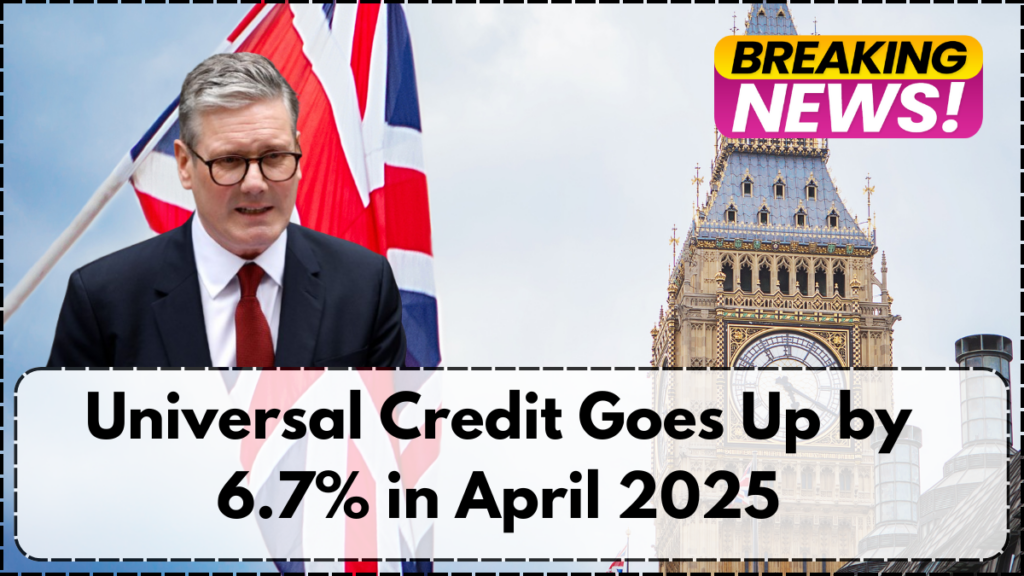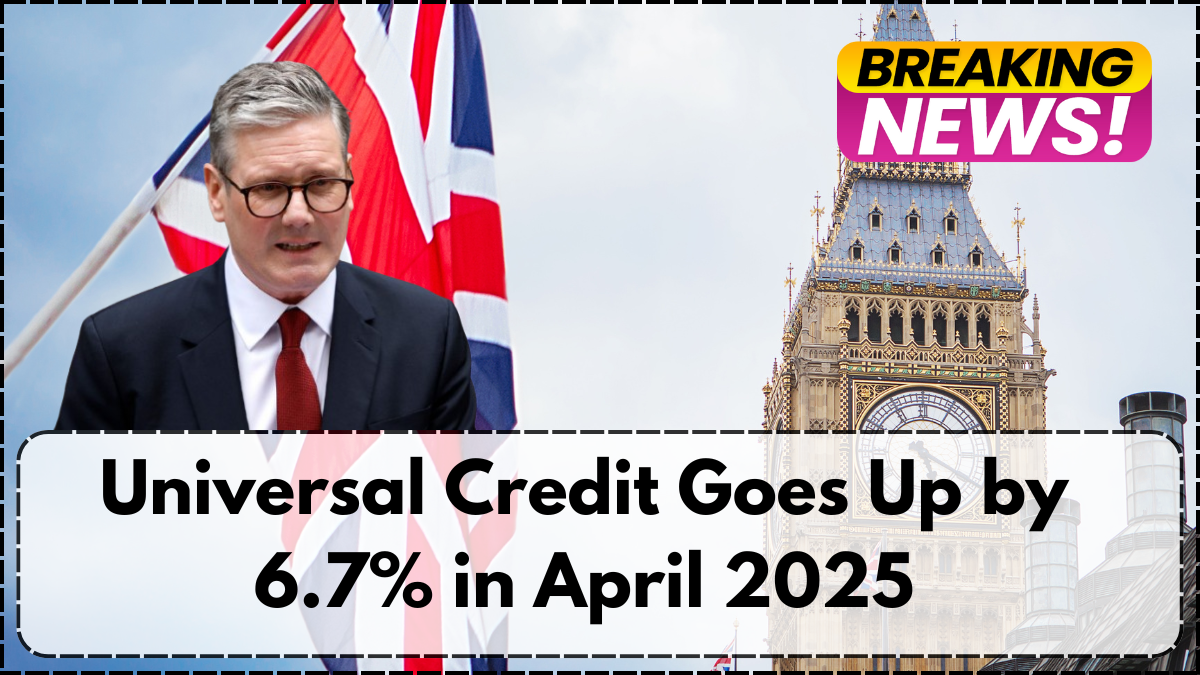The Department for Work and Pensions (DWP) has officially confirmed a 6.7% increase in Universal Credit starting April 2025. This rise, tied to the Consumer Prices Index (CPI) inflation rate from September 2023, is part of the UK government’s annual adjustment to reflect cost-of-living changes.
With more than 6.2 million people receiving Universal Credit, this annual adjustment is a significant update for millions of households. Whether you’re single, in a couple, with or without children, your monthly payment is set to increase beginning this month.

Why the 6.7% Increase Matters
The increase is designed to help low-income households cope with rising living costs. Inflation continues to affect essential spending—like food, utilities, and rent—so increasing benefits in line with inflation helps maintain the real-world value of support payments.
This 6.7% increase mirrors the CPI rate from September 2023. While some expected the update to reflect a more recent CPI figure, this long-established method allows the government to lock in adjustments in time for the April rollout.
Who Will Be Affected?
Universal Credit recipients across all categories will see an increase. This includes:
-
Single adults under and over 25
-
Couples (both under or over 25)
-
Individuals and families with children
-
Those with additional needs (disabilities, caring responsibilities, housing support)
Breakdown of Universal Credit Increase Amounts in April 2025
Below is a breakdown of how monthly payments will change after the 6.7% increase:
| Claimant Type | Current Monthly Rate | New Monthly Rate (April 2025) | Increase (£) |
|---|---|---|---|
| Single, under 25 | £292.11 | £311.68 | +£19.57 |
| Single, 25 or over | £368.74 | £393.45 | +£24.71 |
| Couple, both under 25 | £458.51 | £489.23 | +£30.72 |
| Couple, both 25 or over | £578.82 | £617.60 | +£38.78 |
These figures apply to the standard allowance. Additional support for children, disabilities, and housing will also increase, although those amounts vary based on individual circumstances.
Are Families Better Off?
The Treasury expects that around 5.5 million households on Universal Credit will gain, on average, an additional £470 per year from this increase. However, analysis by the New Economics Foundation warns that inflation has already eroded much of the value of benefit payments over recent years.
In fact, even with the April 2025 uplift, some households may still be up to £670 worse off than they would have been had benefits risen more steadily or matched actual living cost increases in earlier years. This underscores growing concerns about the adequacy of support for low-income families in the UK.
Additional Universal Credit Support Elements Also Increasing
The increase isn’t limited to just the standard allowance. Other components of Universal Credit will also rise by 6.7%, including:
-
Child Element: Support for first and second children will increase.
-
Work Capability Elements: For those unable to work due to health conditions or disabilities.
-
Carer Element: Additional help for those who provide care for someone with a disability.
-
Housing Support: For those renting, especially in areas with high housing costs.
These updates mean that claimants receiving multiple elements could see their total Universal Credit payment rise significantly more than the base allowance alone.
Final Thoughts
The Universal Credit increase in April 2025 is welcome relief for millions of UK households facing high living costs. However, critics argue it still may not be enough to fully offset recent years of inflation. As the cost of essentials continues to rise, staying informed about benefit changes is crucial for budgeting and financial planning.
Keep an eye on your UC journal or DWP letters for exact payment updates based on your personal circumstances.
Frequently Asked Questions (FAQs)
Q1: When will the new Universal Credit rates take effect?
A: The new rates take effect from April 2025. Most recipients will see the updated amount in their first payment following their April assessment period.
Q2: Is the 6.7% increase automatic?
A: Yes, eligible claimants will receive the increased amount automatically. No need to apply or update your details unless your circumstances change.
Q3: Will housing or disability components also rise?
A: Yes, all components of Universal Credit tied to inflation—including housing support, disability, and child elements—are also increasing by 6.7%.
Q4: How do I check my new payment amount?
A: Log in to your Universal Credit online account. Your payment breakdown for April and beyond will be updated by DWP and viewable in your journal.
Q5: What if I think my payment is incorrect?
A: Contact your work coach or use your online journal to raise a query. You can also request a mandatory reconsideration if you believe there’s been an error.
For More Information Click Here
Pari is a passionate writer known for captivating stories that blend imagination and reality. Inspired by travel, history, and everyday moments, Pari crafts narratives that resonate deeply with readers.




